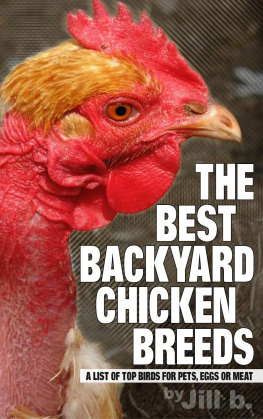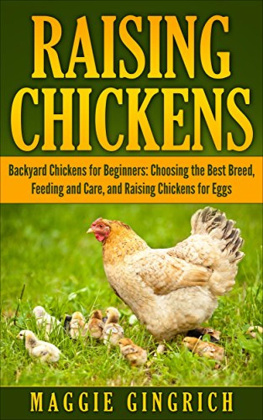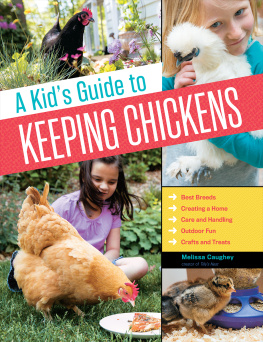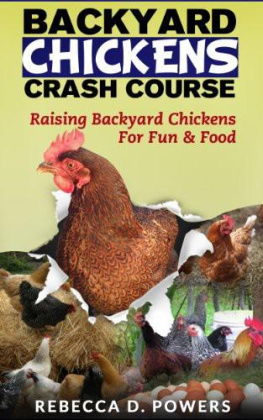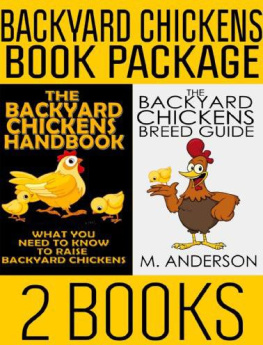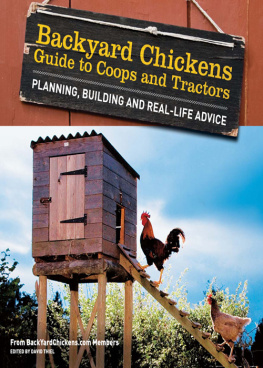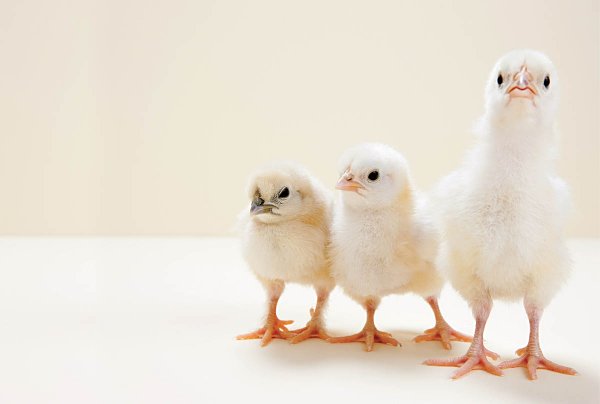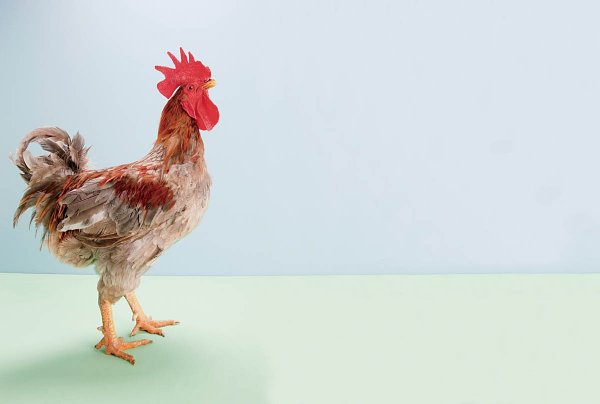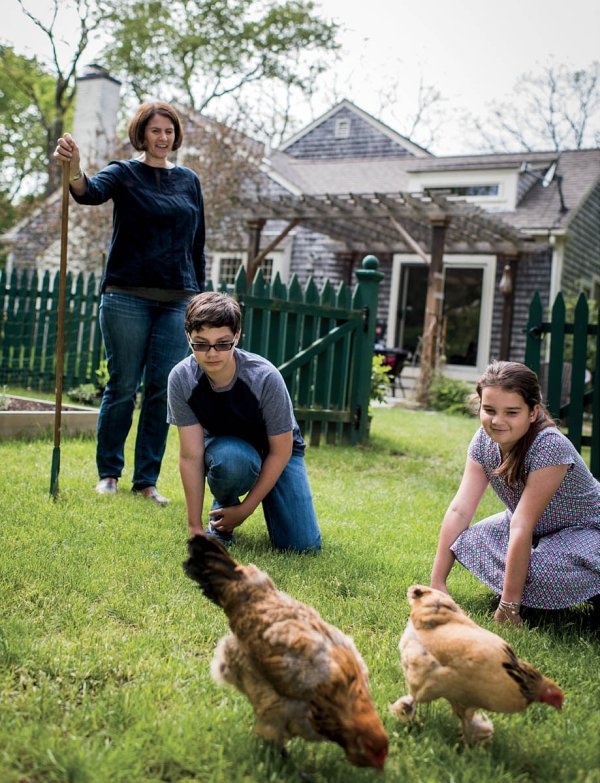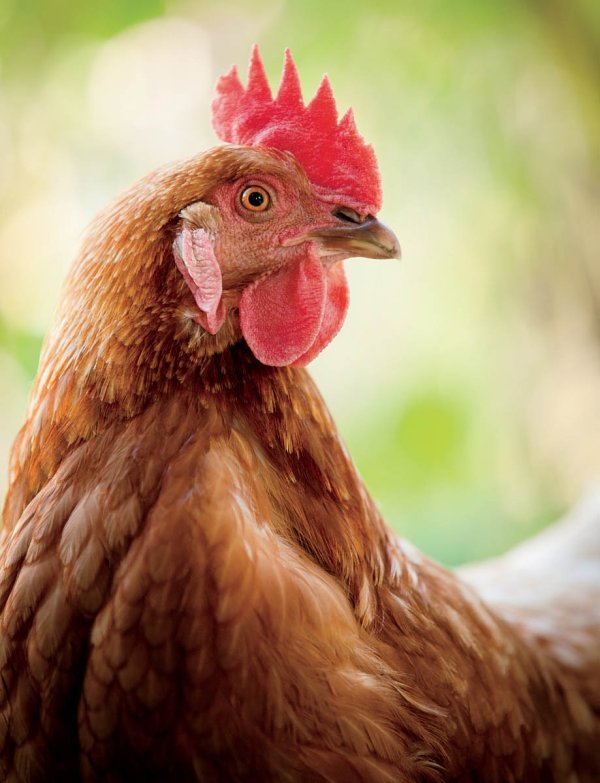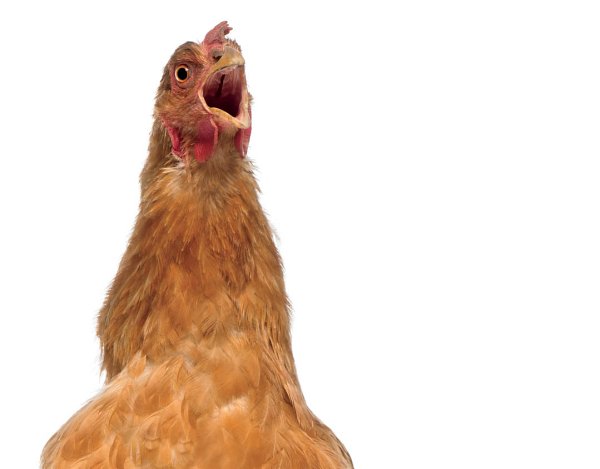This book is dedicated to my husband, Peter, who is continually encouraging me to spread my wings.
Contents
1. Chicken Translator at Your Service
2. How to Behave in the Henhouse
3. What Makes a Chicken Tick?
4. Hey, I am no Birdbrain!
5. How Do You Feel?
Preface
The things you are passionate about are not random, they are your calling.
Fabienne Frederickson, author of Embrace Your Magnificence
What started out as a journey to teach my children about sustainability and responsibility, while providing our family with fresh eggs from our own backyard, has turned into something magical. If you are a backyard chicken keeper like me, you absolutely love your flock. We spend countless hours outside with our girls and cant wait to get home from work and school to be with them. Over the years, I have tried to see my flock through both the heart of a mother and the magnifying glass of a scientist. In that time, I have developed such close bonds with my chickens that I believe I have been accepted into their fascinating world.
Long before I dreamed of owning chickens, I trained as a nurse practitioner, studying sociology, anthropology, psychology, and biology. Learning about interpersonal relationships, culture, language, and societal roles in the melting pot of Los Angeles opened my eyes to the world. At the age of 20, I had no idea that my skills in understanding cultures and my respect for those who are different from me would come in handy in a chicken coop on Cape Cod.
Scientists use many tools and methods to research flock dynamics, including vocalization playbacks, video recordings, 3D animation, wireless backpack microphones worn by chickens as they interact, and even robotic chickens! I dont have any of these sophisticated research tools, but with an open mind and an open heart, I have come to many of the same conclusions as the scientists simply by spending time with my flock and paying close attention to them. And I might have an advantage over the scientists in knowing my hens so well I believe they have made me an honorary flock member.
This book is a culmination of my experiences in keeping chickens, which have allowed me to gain insight into their communication, body language, intelligence, social interactions, emotions, and problem-solving abilities. I am here to tell you that they are clearly not birdbrains, and I invite you on a journey to explore how their minds, bodies, and emotions work. Their world is pretty amazing!
I encourage you to take the time to watch and listen to your chickens chattering as things are happening. Repeat what you hear back to them and watch their response. At first some will stop in their tracks, and like dogs, cock their heads from side to side as they stare at you with their intense chicken eyes. Theyre surprised that you can speak chicken! Keep on copying them. Repeat the sounds they make as you open the coop, listen to what they say when you throw out scratch, follow them around the yard as they explore, and even follow them into the coop to say good night. Repeat the coos and clucks and buk-gaws, and before you know it, you too will be fluent in chicken speak. Who knows, you might even find out that you have a chicken name!
1
Chicken Translator at Your Service
Understanding What Your Chickens Are Saying
Humans often communicate without words: we use our eyes, gestures, facial expressions, and body language. Chickens use most of these, but they have also more than two dozen different vocalizations. These calls include ones relating to territory, mating, distress, danger, fear, happiness, discovery of food, and nesting.
Contrary to what one may hear from the industry, chickens are not mindless, simple automata but are complex behaviorally, do quite well in learning, show a rich social organization, and have a diverse repertoire of calls. Anyone who has kept barnyard chickens also recognizes their significant differences in personality.
Dr. Bernard Rollin, author of Farm Animal Welfare
It is said that if you want to really learn a language, you should move to a place where that language is spoken. To learn to communicate better with my chickens, I simply took a small stool out to the flock and perched with them, day after day, quietly paying attention and noting their interactions. Over the course of their lives, I take the time to get to know each one as an individual. Some seem to enjoy hanging out with people, while others keep to themselves unless treats are being offered, but they all talk. I learned by emulating their coos, clucks, and squawks, paying careful attention to the intonations. It must be a bit like learning Mandarin Chinese, where different inflections give the same word or sound different meanings!
Animals speak volumes if you take the time to listen.
Learning Chicken Language
Ive always talked to my flock while doing my chicken chores. One day I realized that, interspersed with English, I was mimicking the girls. That got me thinking: Could I really speak chicken? Some folks thought I was crazy, but as I started listening more consciously, I discovered that I knew plenty of their calls danger signals, happy calls, hellos, good nights, and even encouragement chatter. I was learning to speak chicken!
Over the next few months the entire family practiced with the flock, copying and trying to interpret their calls. Then one day my kids and I were visiting another flock. As we sat and watched, the flock ignored us and went about its usual chicken business. I decided to try something fun. Truthfully, I was a little embarrassed to share the fact that I was studying the language of the flock. I think my friend thought I was crazy, but she indulged me.
When we used chicken language to greet them, the response was astonishing. Their heads popped right up, as if to say, Hey, is there another chicken here? Some came over to us out of curiosity, and the rest went back to chickening. We chatted a bit more with them using other intonations and sounds. Then for the final test, I used the alarm call to alert them to danger coming from above. Every single chicken paused and became statuesque with one eye to the sky. Just as I thought, they understood me! That was the moment I learned that I indeed was onto something.



